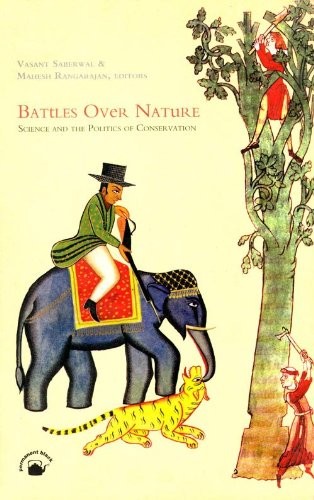In this book, biologists, sociologists, historians and activists come together to search our solutions to the key problems of contemporary conversation practices. Much of the world’s wildlife and biological diversity is located in less developed countries where there is intense competition for resources between people and wildlife. Focusing on India, but also exploring comparable situations in Africa, this book makes the case for a better exploration of this middle ground, and argues for the need to involve not just urban enthusiasts, scientists and foresters but also the villager. Contributors debate the exlclusionary aspects of Indian conservation even as they urge the need to look past romantic notion of egalitarian village republics that will cherish their forests.
Why big, fierce animals are threatened : conserving large mammals in densely populated landscapes / M.D. Madhusudan and Charudutt Mishra — The anatomy of ignorance or ecology in a fragmented landscape : do we know what really counts? / Renee Borges — Ecology and objective based management : case study of the Keoladeo National Park, Bharatpur, Rajasthan / Beth Middleton — Conservation outside protected areas : case study of bustard protection / Asad R. Rahmani — The authoritarian biologist and the arrogance of anti-humanism : wildlife conservation in the third world / Ramachandra Guha — Sustainability and the scientist’s burden / Sharachchandra Lélé and Richard B. Norgaard — The politics of ecology : the debate on wildlife and people in India, 1970-95 / Mahesh Rangarajan — Conservation by state fiat — Vasant K. Saberwal — States, communities, and conservation : the practice of ecodevelopment in the Great Himalayan National Park / Amita Baviskar. pp. 412 #1020
